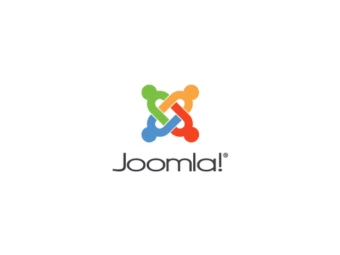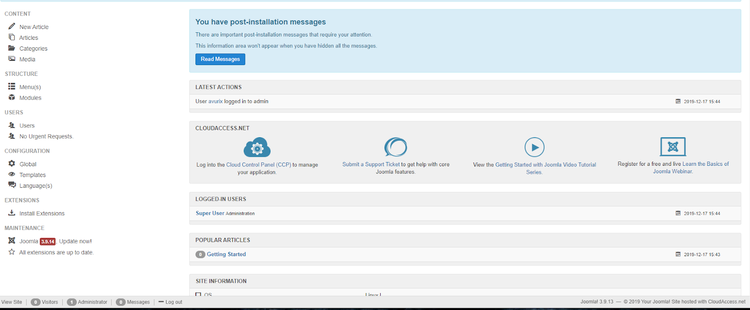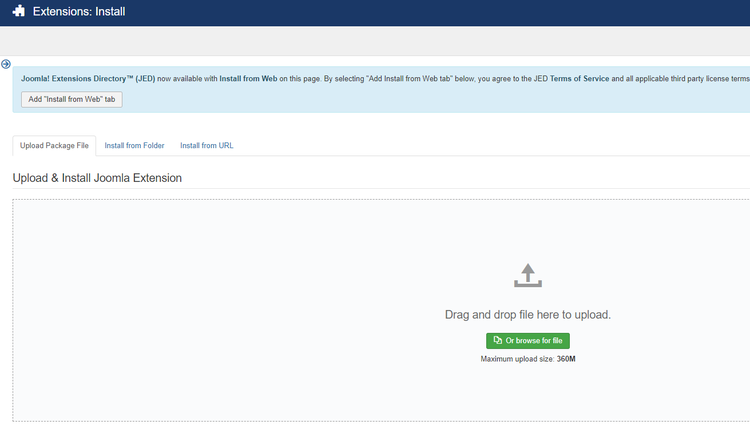Joomla CMS Reviews: In the ever-evolving landscape of content management systems and website builders, it’s crucial to find the right tool that aligns with your needs and goals. Enter Joomla, a veteran player in the field that has garnered attention and loyalty over the years. But what exactly sets Joomla apart from its competitors?
In this comprehensive review, we’ll delve deep into Joomla CMS, exploring its strengths, weaknesses, and everything in between. Whether you’re a beginner looking for a user-friendly platform or an experienced developer seeking flexibility, this Joomla CMS review will provide you with valuable insights to help you make an informed decision.
Table of Contents
Joomla CMS Reviews: Overview

Features:
- Ease Of use
- Support
- Pricing
- Features
Built for everyone from beginners to experts, Joomla delivers on its basic promise, but does little to differentiate itself.
With a name that is very reminiscent of its early 2000s roots, Joomla builds on a solid foundation as a content management system to strengthen its core offering.
While it steers away from a multitude of plugins or any other flashy bells and whistles, it makes simple, straightforward publishing its priority.
The look and feel of the site is clean. However, it can’t be helped: It’s dated. Using Joomla feels like using Microsoft Windows 97 on a Gateway computer, and, unfortunately, there’s something about that setup that significantly detracts from the user experience.
While things are simple when it comes to building the actual site (just for the basics – if you want to customize things, the process is unnecessarily complex), they’re not intuitive, which is something we’ve become accustomed to in recent years.
Joomla gets the job done, but you feel like you’ve gone back in time & if you’re like me, it feels a bit frustrating.

That said, once you have your site built, editing in Joomla is fairly easy and feels almost more like typing in a Word document than a standalone site. Don’t try to edit Joomla templates, however, because not only are the options limited, but the templates are also not intuitive.
Who is Joomla for?
Joomla, out of the box, is built for blogging and article publishing. It’s a safe choice for someone who wants to get their ideas out there without worrying too much about aesthetics or customization.
Joomla is in an interesting gray space where anything beyond the basic publishing options is probably a bit too much for beginners. And yet, at the same time, there is not enough freedom or enough options for experienced site builders.
Joomla does not have a specific target market. If you don’t need a website – maybe you are more of an offline business and just need a site as a relevant placeholder – Joomla works well. Although it can be used for corporate sites, Joomla is probably best suited for small businesses.
According to W3Techs, Joomla is mainly deployed for low-traffic sites with constant maintenance for smaller business sites and, interestingly, government department websites that require basic functionality over styling or SEO keyword ranking.
Joomla’s features
Joomla is definitely a “basics-only” builder, but despite its limited scope, there are some features worth bragging about.
Extensions
Although it lacks a built-in configuration for plugins, Joomla offers extensions. If you need the ability to configure comments, contests, analyze SEO, allow post likes, etc., you can download an extension to help make that happen.
In fact, most of the features associated with Joomla are not from the platform directly, but come from external extensions.

Installation of these extensions is not automatic. Joomla provides a section on their site for you to upload the extension after you have manually downloaded it.

A two-step process for uploading extensions to your site.
Global reach
The simple fact that Joomla has been around for so long means that it has a substantial foothold out there.
Many site builders from other countries outside the US use Joomla. That has led to a valuable community of global developers and users, which means there is a wide support network. Joomla is also available in a wide range of languages.
User management
Joomla allows multiple users, and different permission settings for each user. When you add users, they can have full access to your site or just editor permissions. You can also view your list of users and remove anyone who is no longer in your organization.

Simple overview and user management.
Platform options
Joomla makes it easy for you. Available as a software download, you can install Joomla as an application directly on your desktop, as well as future updates.
However, you are not required to download anything, as you can start using it online for free. Without having to go through a lot of steps, you can quickly create and publish a fully functional website from its web-based builder.
Joomla’s ease of use
Depending on how complex or customized you want to go, the ease of use can fluctuate. At a superficial level, it’s fairly easy to use. You can click on a section, write a page, and publish it in a linear fashion. However, if you have any desire for customizations, templates, extensions, and even SEO capability, it gets murkier.
Extensions are not integrated directly, so getting them up and running is a multi-step process. And even those that are available are often outdated or buggy, as they are not updated regularly.
Installing Joomla using the application requires many steps. If you want to do more than just publish content pretty much as-is, the process is exhausting.
Just look at the limited template options you have when you register:

If you want to get a more customized look, you’ll have to search through extensions, find the most up-to-date ones, download them, and then re-upload and install them manually in your Joomla interface.
Compare that to Squarespace’s drag-and-drop capability or WordPress’ thousands of built-in options, and it’s inexplicably cumbersome.
Joomla’s pricing
This is where Joomla really shines, as it costs zero dollars and zero cents, thanks to its open source nature. You are free to own your site, modify it and use open source code and extensions without worrying about licenses or fees.
Working with Joomla support
As free and open source software, Joomla has no formal account managers or customer service representatives. However, the very nature of having been around for so long means that there is a thriving support community.
Just take a look at their forums page to see all the resources available: regularly updated support questions answered by the community, announcements, directories, event calendars, and user groups you can join for more specialized support.

Benefits of Joomla
The first and most significant advantage is the cost savings, as Joomla and its extensions are free to use. It also uses PHP scripting, the most common web development language, which means that compatibility issues are minimized.
If you don’t have in mind to build a complex site, Joomla is very simple, which means you can have a website up and running in no time.
How Joomla Compares
| Free plans | Flexibility in customization | Loading speed | SEO readiness | |
|---|---|---|---|---|
| Joomla | ✅ | |||
| Squarespace | ✅ | ✅ | ✅ | |
| WordPress | ✅ | ✅ | ✅ | ✅ |
| HubSpot CMS | ✅ | ✅ | ✅ | |
| Magnolia | ✅ | ✅ | ||
| Wix | ✅ | ✅ | ✅ |
FAQs
Are there any specific industries or niches where Joomla excels?
Joomla is particularly suitable for industries such as education, government, non-profit organizations, and community-based websites due to its focus on content management and accessibility.
How does Joomla handle security?
Joomla has a dedicated security team that releases regular updates and patches to address vulnerabilities. Additionally, there are various security extensions available to enhance the platform’s security features.
Can Joomla integrate with third-party services and APIs?
Yes, Joomla provides integration capabilities through extensions and plugins, allowing you to connect with various third-party services, APIs, social media platforms, and other web applications.
Is Joomla suitable for creating membership or subscription-based websites?
Yes, Joomla supports membership and subscription models through extensions like Membership Pro or Akeeba Subscriptions, enabling you to create gated content, restrict access, and manage user subscriptions.
Mike DaVinci HighTechBlogging.com
Mike DaVinci is a skilled content writer with a talent for storytelling. He specializes in creating captivating narratives that engage readers and leave them feeling inspired. His writing has been featured in various publications, including magazines, blogs, and business websites. Mike’s particular interest in human interest stories allows him to uncover the heart of any story and convey it to his readers in an emotional and authentic way. He believes that storytelling is a powerful tool for connecting with people and inspiring positive change in the world.
To read more similar articles, click here
Thanks for visiting our Website. If you appreciate our work, kindly show us some support in our comments section. 🙂




